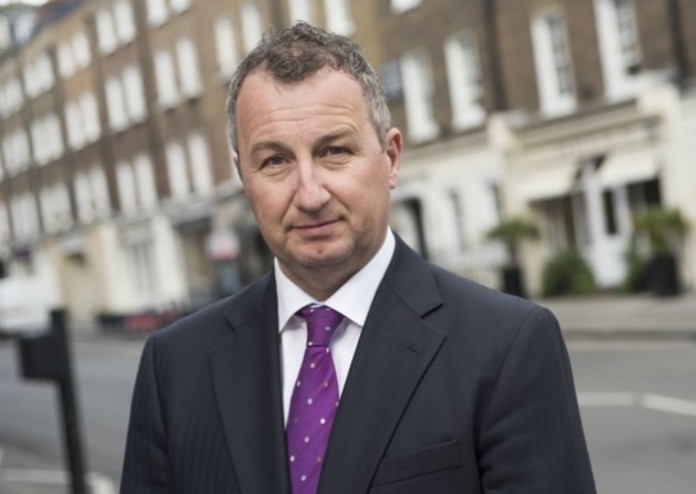Latest research concerning the rise of Airbnb must galvanise traditional hotel operators to fight back, according to global real estate advisers Colliers International, particularly against the unfair advantage whereby the new “disruptors” in the hotel business do not pay business rates.
Recent figures from Colliers International and Hotelschool in The Hague has shown that nights booked with Airbnb in London rose strongly in 2017 by 45%. This amounts to 6.7 million overnight stays (compared to 4.62 million in 2016 and just over 2 million in 2015). By contrast hotel stays only grew 4.6% (91 million).
“This is just not a level playing field, ” says John Webber, Head of Rating at Colliers International. ” Not only is Airbnb attacking hotel market share, by offering cheaper room rates, but is able to do this through the unfair advantage of not paying business rates.”
According to Colliers the rise in volume of Airbnb lettings should therefore be seen as a “material change” to the hotel industry and hotel owners in areas where Airbnb has a strong presence, who should use this factor to appeal their business rates valuations. The Valuation Office Agency, which undertakes business rates appeals, normally looks favourably on businesses that can show a “material change in their circumstances” and by definition Colliers believes hotels in areas where Airbnb is strong and growing should be included in this policy.
This is particularly pertinent at a time when many London hotel operators are seeing the second rise in their business rates following the April 2017 revaluation and due to the policy of transition, these rises will continue for the next few years. For example, at the top of the range, the Dorchester Hotel saw a 131% rateable value rise in the Revaluation, which Colliers estimate means its annual bill nearly doubled from £301,000 in 2016/17 to just under £600,000 this year and this will be nearly £750,000 by 2021/22.
Or the Z Hotel, WC2, billed as “having everything you need for a couple of nights in town. Concentrated style with an out-of-town price in the heart of London” and hence a prime competitor to Airbnb, saw a 115% rise in the Revaluation which meant its annual bill has risen from £142,000 a year in 2016/7 to £282,000 this coming year to £329,000 in 2021/22. These are massive increases at a time of rising staff costs and inflation.
Whilst contending with these rises, hotel operators are needing to compete against new entrants into the marketplace who acts like hotel providers to let out rooms, but because of loopholes in rating legislation are able to avoid paying business rates.
Webber continued, “The quantity of additional rooms being made available by Airbnb is equivalent to the building of several hundred new hotels across the UK. Should these hotels have been built, the Valuation Office Agency ((VOA) would accept “a material change of circumstance” to the hotel operators’ business.”
Further reasons for argument lie in the fact that in 2017, around 62% of Airbnb listings were offered by hosts with more than one listing, up from 54 % the year before and 48% in 2015, reinforcing concerns about professional lettings via the site. Over 45% of units in London were provided by multi-listers (those with three or more properties) and the percentage of landlords with more than 10 properties listed in London rose to 23%, an increase of 8.4% since the previous year.
Colin Hall, Head of London Hotels for Colliers International, said: “This rapid growth in multi-listed landlords demonstrates the changing profile of Airbnb from what was originally a platform for individuals to let out their own homes, to a profitable commercial venture whereby people are buying residential properties specifically for use as Airbnb accommodation and compete against the hotel market. Now more than ever, regulation is needed to manage this growing platform to ensure a fair playing field for hoteliers and landlords alike.”
As Webber continued, ” These are businesses – yet they don’t pay business rates. ”
Central London, & West End, Southern Fringe and the Northern Fringe were among the neighbourhoods which took the highest percentage of Airbnb business in the London market, collectively amounting to 61% of total bookings last year. Webber feels hotels in these areas of London in particular should take note, and appeal against their rate bills, as should hotel operators in other cities such as Oxford and Bath- that attract tourists and hence Airbnb operators
“We would argue that the advance of Airbnb rooms let in close proximity is a “material change” and hotel operators should appeal their rateable value and hence their rates bill, before they take a financial turn for the worse, which would affect both profits and jobs in the trade.”
Webber continued, “Hotel operators are in a similar position to many of the UK retailers, particularly in London, with rates bills jumping higher and higher every year and competing against the on-line market that does not pay business rates. Something must be done to make things a more level playing field and hoteliers need to fight back to get their rating bills and hence their costs under control. It would be disastrous for the industry if they followed the fate of many retailers in the current bloodbath of administrations and CVAs. “



















